The “point of no return” on the Orthodox road is a place of inner wrestling that is very uncomfortable. It can happen all at once, or more as a quiet, slow realization as we learn about the Faith of the ancient Church and start practicing it to the best of our abilities. It’s a realization of, “I can’t go back to the way I was. I can’t go back to my old beliefs, my old ways of thinking, and my old spiritual practices.”
If you grew up Orthodox, maybe you’d been taking your faith for granted for many years. After a season away from the Church, you’ve discovered that your life lacks meaning and direction, and you need to get serious about following Christ. At that point, as the old saying goes, you need to fish or cut bait.
But you can’t go back.
If you’re from a Protestant background, maybe you’ve spent a season inquiring into Orthodoxy—studying, listening to podcasts, attending services, and perhaps taking an Intro class at your local parish. Now, when you go to your home church, you notice the bareness of the walls, and you’re aware that the worship service feels theatrical . . . or condemning . . . or self-focused. You don’t want to judge anybody, but you’ve experienced a shift in your heart and in your mind.
And you can’t go back.
This sounds like a good place to be, a turning point, but it doesn’t necessarily feel that way. You’re dealing with inner turmoil rather than joy or peace. You are drawn to the beauty of the ancient Faith, but Orthodox worship is still an alien experience. Stumbling stones remain.
For Catholics, the liturgical form of worship is more comfortable. But you’re having to reexamine your childhood beliefs, and this can be disconcerting. It’s a matter of sorting the ancient grains of wheat from the chaff.

And if you’re from a secular background, everything is new and strange—and beautiful and demanding and, well, different.
Whatever your background, at this point of no return the realization dawns: “I can’t go back.”
And if your connection to the Orthodox Church could be summed up on Facebook, your relationship status would be, “It’s complicated.”
It’s complicated at home . . . because you’re not alone in this decision. If you’re married, your spouse might not be on board with the idea of becoming Orthodox. Sometimes he or she is vehemently opposed. I know married people in my own parish who attend faithfully, and they attend alone.
And if you have teenagers, you’ve never seen so much eye-rolling about church attendance. “It’s so boring. I don’t like this music…”
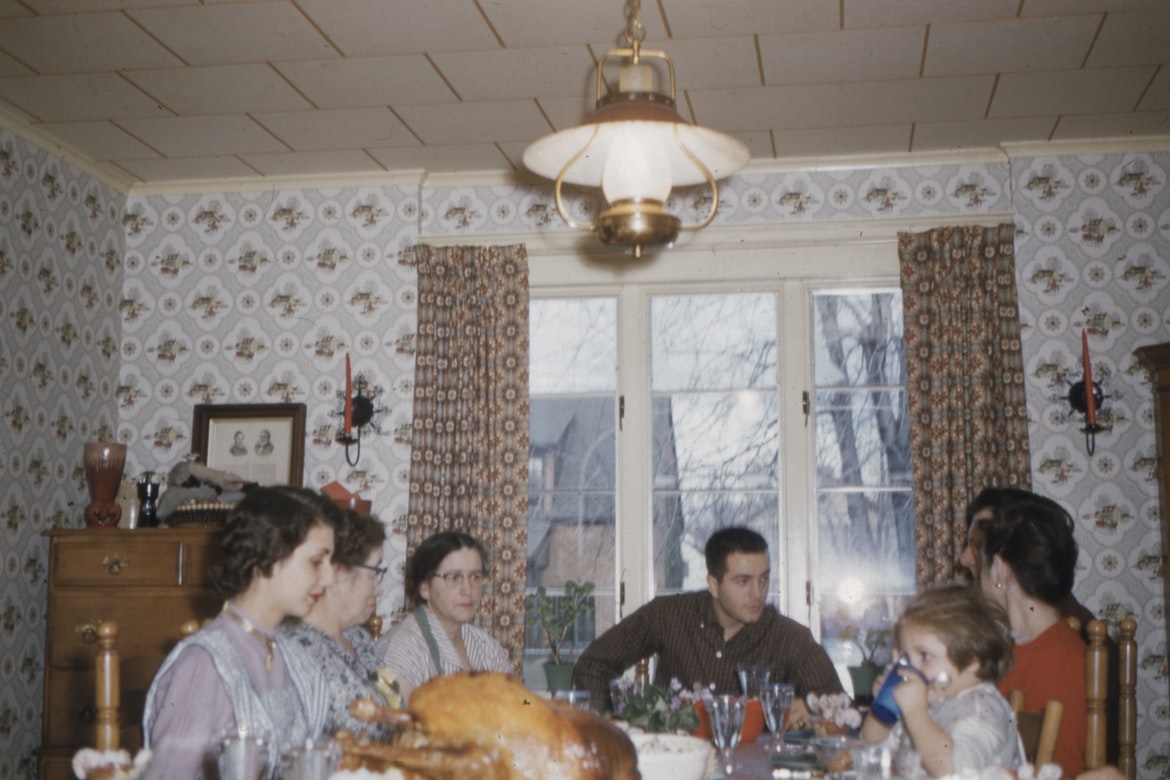
If you are part of an Orthodox family that attends church infrequently—on Christmas Eve, Pascha, and maybe a name day and the occasional memorial service—they might start asking, “You’re going to church again? What’s up with you?”
And what if you’re single, but your family has been Southern Baptist for five generations? How do you think that Thanksgiving dinner is going to go?
It’s complicated . . . socially, because leaving one community for another is hard. Many people have spent decades as a part of one congregation. Their spiritual brothers and sisters are truly family. Leaving, even in peace with others and for very good reasons, can be traumatic. It means starting over, meeting new people, learning new traditions. For some people, their church family offers far more support than their blood family, and leaving can feel like a divorce.
It’s complicated . . . in our own hearts too, because becoming Orthodox requires that I question some of the things I’ve been taught, and that can be scary.
Over the years I’ve observed that people with no religious background embrace Orthodox Christianity more easily than committed Christians from other church backgrounds. The secular folks have no preconceived notions. They don’t need to question their theology because they never had any. They just sort of go with the flow.
But especially for Protestants, a lot of weighty matters must be examined: the meaning of baptism, and when and how it is performed; the meaning of salvation (Does it occur at a point in time, or is it a process?); the proper interpretation of Scripture; authority in the Church . . . I could go on and on. And if you’re at that place right now, in your head you’re probably adding more bullet points to this list.
As if all these considerations weren’t enough to contend with, many converts experience a difficult transition from casual, contemporary church services to the formality of liturgical worship. Put all of these difficulties together, and “complicated” doesn’t begin to describe it—it’s overwhelming and discouraging.
This situation might make you wonder . . .
How Long Am I Going to Be Stuck in This In-between Place?
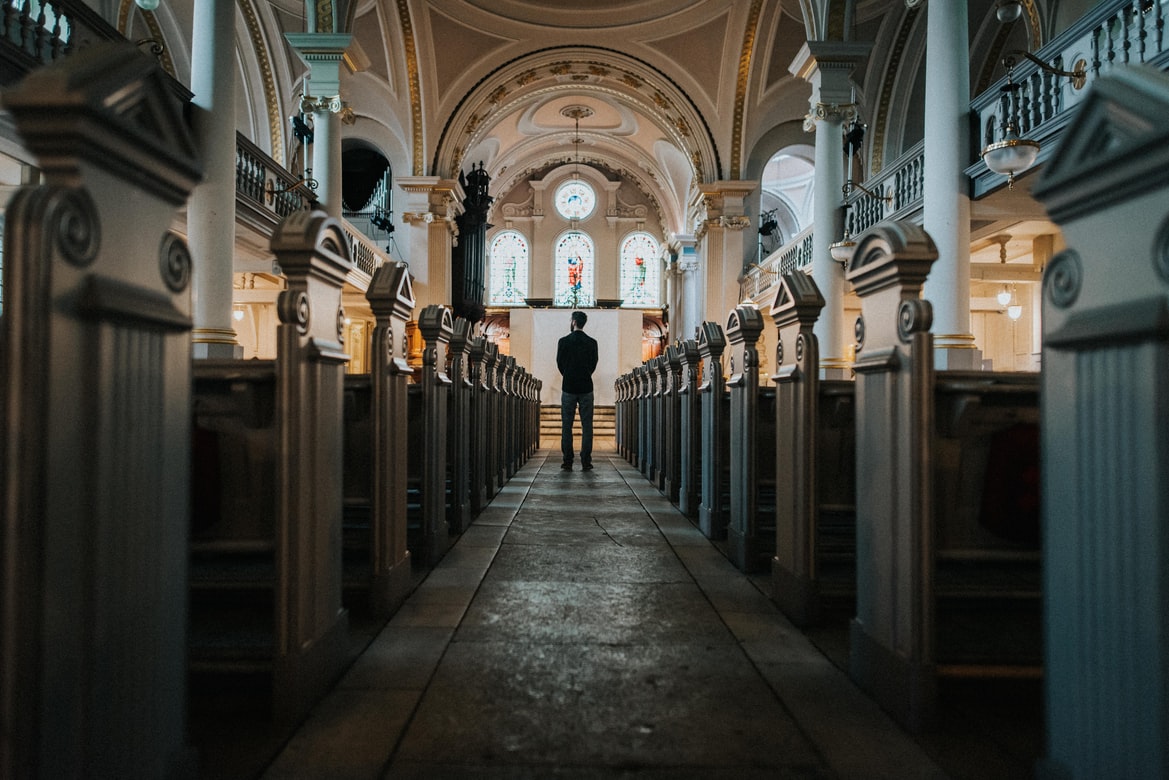
Will the unfamiliar ever become familiar and beloved? Will I ever feel at home in an Orthodox parish? In short, how long will this transition take?
As I noted earlier, for some people that transition is measured in months, and for others, in years. I was ready to become Orthodox after about six months of attending services and Introduction to Orthodoxy classes, long before my husband was ready. This was partly because I was much more burned out and disillusioned with the Evangelical subculture. If you’re interested, you can read my post about discovering Orthodoxy, called “Burned Out on Church with Nowhere to Turn,” on the Walking an Ancient Path blog at ancientfaith.com.
Reasons for Reaching the Point of No Return
So, why do people reach a point of no return, when we are no longer comfortable with our comforting Catholic parishes, our familiar Protestant congregations, or Sunday mornings of sleeping in and relaxing? (Some people refer to those lazy, church-free Sundays as attendance at “Bedside Baptist.”)
Well, reason #1 is . . .
1. You know too much.
This was definitely a driving issue for me. I’m a bit of a nerd, so I tend to read and read and learn as much as I can so that I can understand something. In terms of Orthodoxy, I’m using the word understand very loosely here, since so much of the Faith is a mystery, but I reached a decision to become Orthodox based on the level of understanding that I’d acquired. My personal comfort isn’t my first priority; Truth is.
Now, I don’t mean to sound snooty or superior about that; it’s just the way I’m wired. Other people are more experientially oriented—they need to feel God’s presence and be captivated by the worship. I know people who approached Orthodoxy with open hearts and received whatever the Church offered with faith and simplicity. I marvel at people like that.
Actually, there should be no dichotomy here; doctrine should be full of life, not a collection of dry, intellectual propositions; and our heart response to God’s presence should flow from unchanging truth and Christ-centered worship. The love of God fills His Church, in all of its teachings and practices. It’s just that some of us lean more in one direction than the other.
As I mentioned last time, I definitely felt God’s presence in an Orthodox parish. At the same time, Orthodox practice was new and odd to me. But at that spiritual crossroads, I sensed that if I followed Truth and submitted myself to the apostolic Faith and walked in its fullness, the emotional part would take care of itself.
I knew that some of the beliefs of various churches I had attended were either wrong—actually opposed to centuries of historic Christian teaching—or incomplete. And I could no longer pretend that these “little” differences were really that little and that they really didn’t matter.
A second reason for reaching the point of no return is…
2. You’ve tasted and seen.
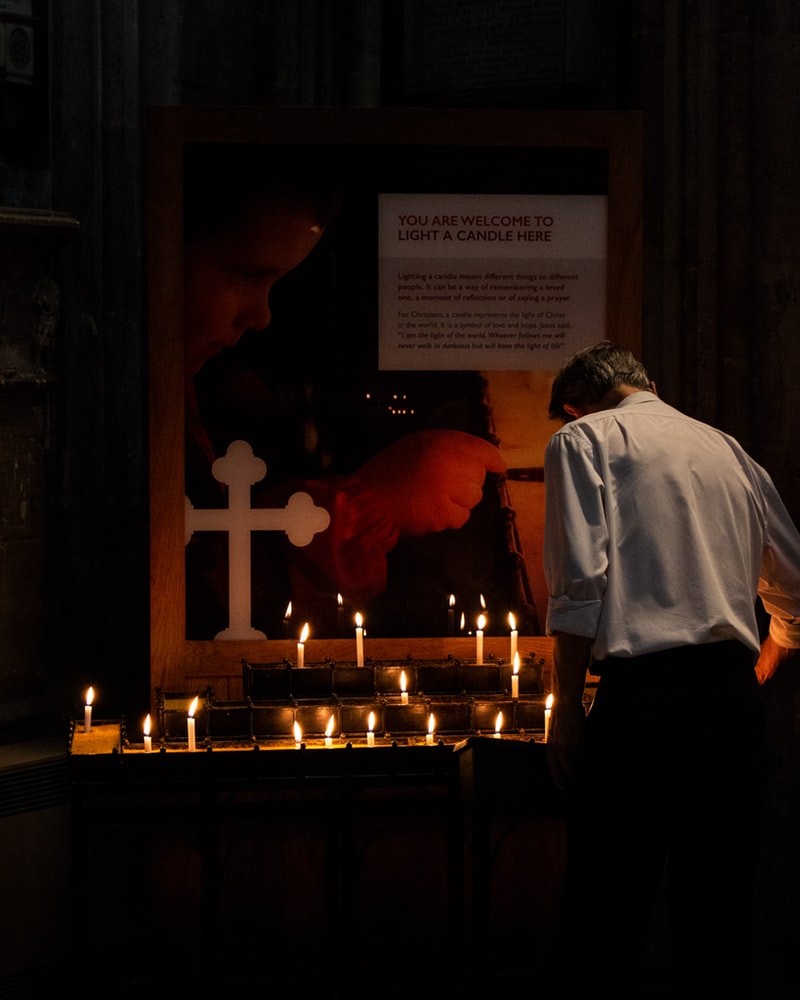
Speaking of the experiential stuff, I’m reminded of verse 8 from Psalm 38 (that’s 37 in the Septuagint): “Oh, taste and see that the Lord is good; Blessed is the man who trusts in Him!”
Doctrinal arguments and struggles aside—and that’s a lot to put aside—in the Divine Liturgy you have entered into the ongoing heavenly worship. Even when you aren’t sure exactly why the service progresses the way it does or why some parts feel repetitive, there are transcendent moments—maybe in the triumphant “Blessed is the Kingdom!” that begins the Liturgy, or the choir’s shift to a slow, minor key as we begin preparing to receive the Eucharist. In these moments, you know that this, here and now, is true worship, flowing from eternity, glorifying the Holy Trinity, calling us to repentance and transformation in Christ.
Sometimes you may taste and see that the worship is like heavenly ambrosia; other times worship may taste more like an “eat your spinach because it’s good for you” exercise. But regardless of your emotional responses, eternity is here, and you know that we are surrounded by the saints and angels, glorifying God together.
So when you go back to your home church, even though you love the people and your pastor and the familiar worship songs, the walls look bare and empty, or the Mass at your Catholic parish feels truncated, and you notice the things that are missing.
3. The Holy Spirit keeps drawing you.
Back in the early days of our Orthodox journey, sometimes I would attend an extra service on a weekday. I’d return home, and Rob would ask, “How was the service?”
“Beautiful,” I would respond.
Liturgy? Beautiful. Vespers? Beautiful. Paraklesis? Beautiful.
Something in the worship satisfied my soul, beyond my ability to understand. If I had simply been looking for dignified, liturgical worship, I could have chosen one of many churches: Episcopalian, Lutheran, Anglican, Catholic.
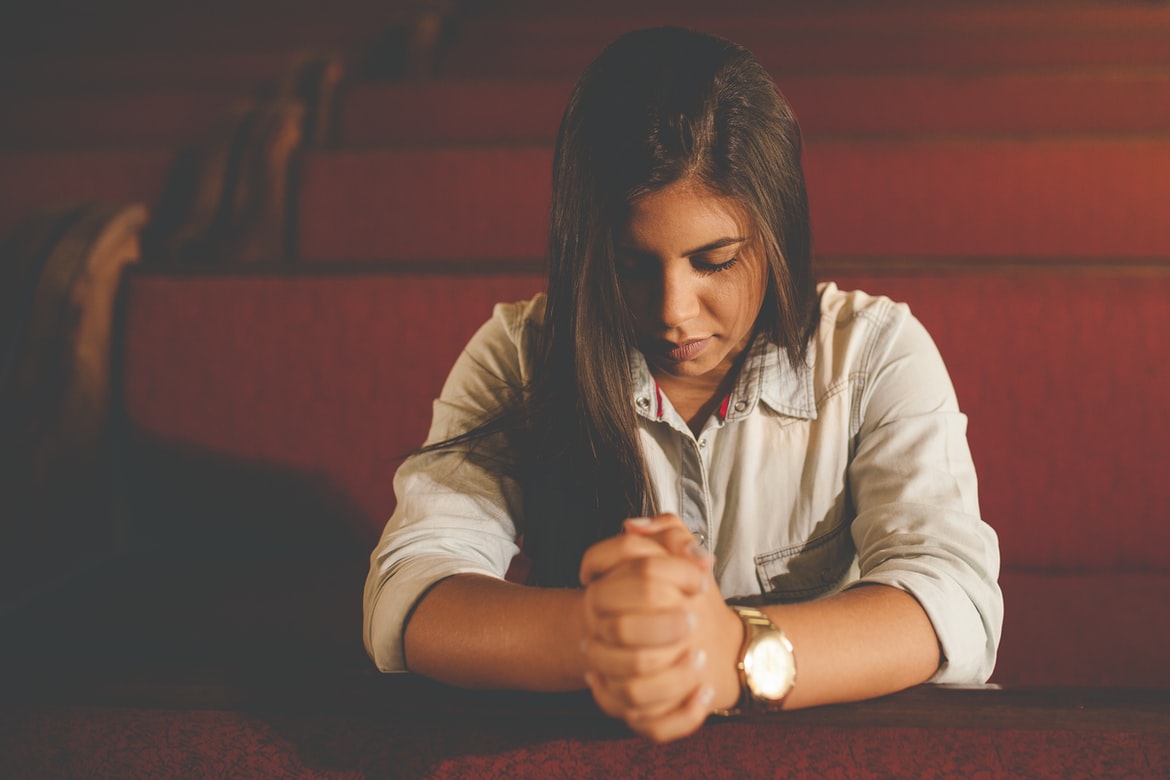
But in the Orthodox Church I saw the Holy Spirit at work over two millenia, with a continuity of belief and practice among believers throughout time. I experienced an emphasis on repentance—a word that was being used less and less among the groups in my Evangelical context—and humility, a working out of our salvation and experience of God’s grace through the sacraments.
All of this is the work of the Holy Spirit in us corporately and also in our individual hearts. In this theology of healing, I felt the Holy Spirit calling me home. Not home in the sense of a place that fit my personal preferences. But home in the ancient Church that Jesus established.
Of course, if I had only myself to answer to, the next steps on the road would have been easy. But often . . .
Our Loved Ones Disagree
For some of us, we want to become Orthodox, but our spouses and children do not. A dear friend of mine spent her entire life in one Episcopal church. Interestingly, her priest kept several icons in his office as well as books on Orthodox theology, which he loved. When her husband discovered Orthodoxy, he would walk into the parish while she sat in the car, crying. Now she is a very faithful and involved Orthodox Christian, but the transition was painful and involved a lot of letting go.
My husband loved what he was reading about Orthodoxy, with its consistent theology of human freewill, of a God who always loves and invites but never forces us. But experiencing Orthodoxy was not so great. The services were long. The saints in the icons seemed so somber. And everything was so scripted.

I remember clearly a moment when we sat across from each other at a local pub, the restaurant’s microbrews on the table (this is Colorado, after all), discussing the beauty of Orthodox theology but the stiff and foreign feel of the Liturgy. I was desperate enough for the ancient theology and reverence of the Church that I was willing to put up with the things that felt weird, hoping and praying that, in time, I would grow in understanding and feel comfortable there.
But Rob looked at me over his mug of craft hefeweizen and said, “I will never be Orthodox.”
I listened, absolutely understanding where he was coming from, but my heart fell. How were we going to get through this?
As we were exploring Orthodoxy, two of our children were away at college, and two were still in high school. Rob thought that maybe we could attend an Anglican church a few miles away from us, because it was liturgical but not as rigid as Orthodoxy. We could get the best of both worlds—reverence in worship with a modern approach.
I liked the church and the work that it was doing in the community, but . . . I had read too much. “It’s still a bad root,” I said, referring to Anglican’s origins in Henry the VIII’s desire to divorce and remarry. All historically recent churches contain theological innovations. And I was done with the new.
I wanted the Orthodox Church’s apostolic succession, the adherence to the first seven Ecumenical Councils, and the Eucharist as understood by the holy Fathers.
So, for a while we volunteered on Sunday nights at a Pentecostal church that ministered to immigrants, spent one Sunday morning at an Evangelical Presbyterian church, then alternate Sundays at an Orthodox OCA church. We were all over the Christian map, and after a couple of months of divided loyalties, I reached that point of no return. But Rob wasn’t there yet.
One thing we both understood is that religious arguments benefit no one. They do not honor God, they do not lead to peace and reconciliation, and they teach children—even older ones—that religion causes division.
For all these reasons, Rob and I didn’t argue, but the tension was real. Fast-forwarding a bit, we moved to a different parish with more families of high schoolers, got to know the priest and some others while we attended classes, and at last Rob reached his own point of no return. We were chrismated in early 2011. Our younger son was chrismated a few months later, then our younger daughter was baptized a while after that.
For us, the process of becoming Orthodox was a two-year journey. But every story is unique.
Keep Praying
If you’re the only one in your family who wants to become Orthodox, that is a tough place to be. Please talk to your parish priest and ask for his counsel and prayers. Some situations work well with one spouse Orthodox and the other attending a different church. It’s not an ideal situation, but with love and mutual respect, peace can reign.
But in other instances, perhaps because of the children’s involvement at a church or the extended family’s historic attendance, one person taking the Orthodox road could cause a lot of disruption to the marriage and family. It’s possible to be a part of your family’s congregation and attend weekday services at your Orthodox parish, but your work schedule might not allow it. Also, it’s a lot of juggling.
The situation is not necessarily easier if you’re single. I know of a young woman who became Orthodox through the influence of her then-boyfriend. Her parents and siblings, all staunch Calvinists, were convinced that she’d joined an idolatrous cult. They have caused her a lot of pain, and because they refuse to learn anything about the Orthodox Church, mutual understanding is elusive.
If you’re at this point of no return without the support of your loved ones, keep praying. Be patient. Don’t forget that God knows your circumstances and knows the hearts of everyone involved.
And, remember . . .
Being Orthodox Is Not the Goal
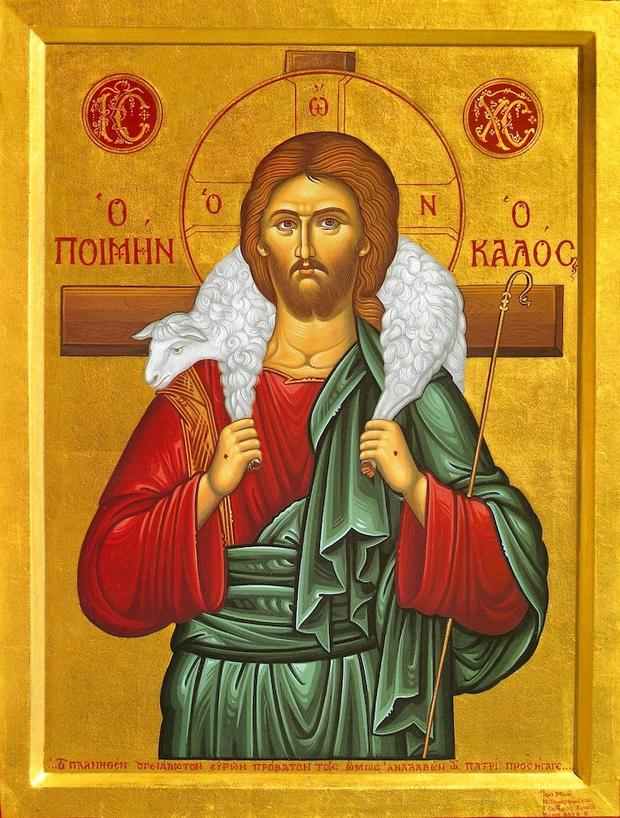
Knowing Christ is our goal. All the things I’ve talked about in these past two posts—unchanging truth, the beauty of the Liturgy, healing theology, etc., etc.—are good things, but if they distract us from knowing and following Christ, they are no more than window-dressing in our lives. Everything in the Church, from the colors of the vestments to the words of the hymns, is meant to point us to Christ, to guard and shape our thoughts, and to transform our lives in Him.
No matter our circumstances, Jesus Himself gave the greatest commandment for us to follow: to love God and love our neighbors (Matt. 22:35-40). Do not be drawn into religious arguments.
On the July 18, 2021, episode of Orthodoxy Live, Fr. Evan Armatas answered a question from a listener about dealing with friends who are still Protestant. She didn’t say if her friends were merely questioning her or if they had become hostile or argumentative with her. They might have been fearful for her very soul.
Her question, and Fr. Evan’s answer, starts 39 minutes and 28 seconds into the program. It’s worth a listen. Father Evan references St. Paul’s warning in Titus 3. In verses 8 and 9 St. Paul writes,
This is a faithful saying, and these things I want you to affirm constantly, that those who have believed in God should be careful to maintain good works. These things are good and profitable to men.
But avoid foolish disputes, genealogies, contentions, and strivings about the law; for they are unprofitable and useless.
The apostle also encouraged his people—and all believers—to “learn to maintain good works, to meet urgent needs, that they may not be unfruitful.”
If your family and friends are suspicious of Orthodox Christianity or simply uninterested, Fr. Evan reminds us that life in Christ should lead us to holiness, with love for God and others, service, and humility. We have no need, and no right, to condemn others or to quarrel with them. He advises us to accept criticism with gentleness, understanding, and mercy, while reassuring friends and family of our increasing love for Christ.
Love for Christ should be the root of our desire to enter the Church. If it is not, and it’s merely about theology or doing something different from the things that have not worked for us in the past, then we’ve missed the mark.
Father Evan advised the caller to “become a fervent doer of the commandments of Christ.”
If you’ve reached the point of no return in your own life, I don’t know how the scenery looks at your personal crossroads. But in the struggle, keep praying, keep in touch with your spiritual father, and thank God for the opportunity to learn to love better, to humble yourself, and to practice patience.
God can and will use your situation for His glory. May you know His peace.
***
Next time we will begin a new series called “Divine Liturgy Quickstart.” My prayer is that these posts will help readers to understand the Divine Liturgy more deeply without having to read a bunch of books or take a class in Liturgics. The liturgy is a journey into the Kingdom, with a definite path and destination. And just like any road trip, once we’re familiar with the scenery and understand where the path is leading, we can journey with joy. I hope you can join me.
I identify with Rob’s “I will never be Orthodox.”
My husband, on his first liturgical visit, said: “I’m here but I’m not kissing anything!”
I was chrismated 30 months before he was ready. Yes, I counted. He took his time, being a Baptist seminary grad. Now, if such a thing is measurable, he is more Orthodox than I ever dreamed of being.
Ten years in and three out of four of out adult kids has followed us in our their own time. Number four (highly scarred from past church experiences) is a wary though faithful attendee.
30 months! Wow. It’s so good to hear a happy ending. I understand about scars from church experiences. I pray your youngest will find healing.
Well, well done. I sure do enjoy your posts.
Thank you!
Thank you for this thoughtful and kind perspective.
I continue the journey.
So glad to hear this, Jeff. Godspeed!
Your article is spot on! This was me! Thank you for all your articles, they are honest and real.
And thank you!
I am often grateful that I was just a garden variety secular hedonist when coming to the Orthodox faith. No ingrained religious doctrines to unravel. My entrance was fast and fairly uncomplicated. That’s not to say that other roadblocks didn’t eventually arise. Wonderful story!
Thank you, Will, and welcome! You’re another data point in my observations about secular people having an easier time with Orthodoxy . . . at least initially. 🙂
Thank you so much for your posts. The past year I have been drawing closer and closer to the Orthodox church and have been pulling away from my Reformed, Fundamentalist Evangelical roots. Its a long and lonely process. My husband and I are VERY involved in our Protestant church. He more so than me as I have pulling away more and more. He leads worship and teaches the youth. He knows and sees me on my path to Orthodoxy and I know my days are numbered at our current church. We also have 3 young children. So I have a feeling this will be a long journey for me and for us as a family.
Thank you so much for your writing and I am grateful for Ancient Faith Ministries.
That’s a tough place to be. And I’ve observed that people from a Reformed background have an especially difficult struggle with Orthodoxy, because John Calvin’s teachings are a repudiation of ancient Christian teachings on many important points. I’ll keep you and your family in my prayers! And in the meantime, you and your husband might appreciate the articles on “Orthodox–Reformed Bridge.” I don’t think the blog is active anymore, but you can search for the title on the Blogs page at ancientfaith.com, and many interesting topics will pop up that are relevant to Reformed folks.
May God bless and lead you on your journey!
Thank you for your posts and podcast. Your writing is both understandable and relatable. I too have 4 adult children, two of whom became Orthodox. Hubby and I (who are at the same point in our journey) have Southern Baptist in our genealogies. We love our current church and the people there, but definitely seem to be on the path toward the point of no return. Thanks for putting into clear words some of the stumbling stones/boulders/mountains that are on our path and for clearly describing the orthodox faith and ancient stance on these.
You’re welcome, Allison. May God bless you and your husband on your journey, wherever it takes you.